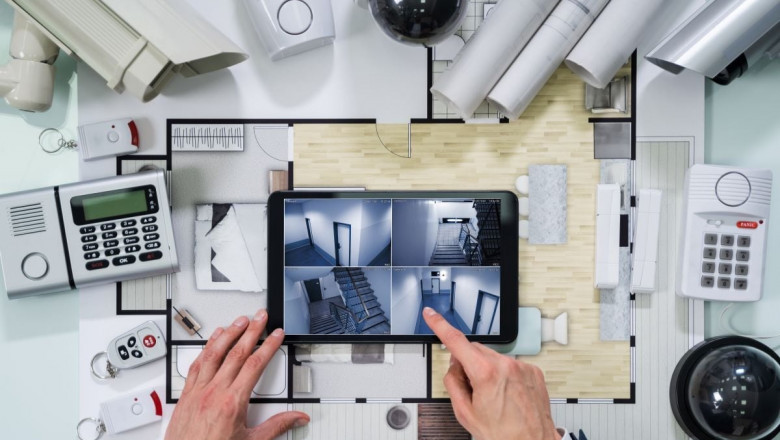views
One of the most effective tools is mobile access control. This technology doesn’t just improve building security, it directly supports tenant satisfaction and retention while also boosting a property’s overall market value.
What is Mobile Access Control?
Put simply, mobile access control allows users to unlock doors and gain entry to a building using their smartphone or smartwatch. Instead of carrying a keycard or fob, tenants and staff use secure digital credentials, typically stored in an app or digital wallet. Property managers or enterprise administrators can issue, revoke, and manage these credentials remotely.
It’s a modern solution that aligns with the expectations of today’s tech-savvy tenants. Be it managing a commercial tower, coworking space, or mixed-use development, mobile credentials make access faster, more secure, and far more flexible.
Why It Matters for Property Value
Investors and prospective buyers are increasingly looking for smart, future-ready buildings. Adopting access control integration that supports mobile credentials signals that the property is already prepared for modern workplace demands.
Here’s how that directly adds value:
- Lower operational costs: Mobile access eliminates the need to print physical access cards, maintain card readers, or deal with lost keys. Everything is managed from a central platform.
- Scalable infrastructure: As buildings grow or change, cloud-based systems with access control integration make it easy to add users, grant temporary access, or onboard new tenants, without needing physical site visits or hardware upgrades.
- Attractive to premium tenants: Companies seeking flexible workspaces and smart amenities are more likely to sign long-term leases in buildings that support digital tools like mobile access control.
Properties with these systems can market themselves as smart buildings or “Class A” spaces, often commanding higher lease rates as a result.
A Key Driver for Tenant Retention
Tenant retention isn’t just about competitive rent; it’s also about convenience and experience. And this is where mobile access control really shines.
For tenants, using their phone to enter the building, shared workspaces, lifts, and even parking areas simplifies daily routines. No more fumbling for access cards or calling building management to replace a lost badge. This streamlining of access points improves satisfaction and helps tenants feel like they’re in a forward-thinking, secure environment.
The system is also easier to oversee from a facility management perspective. With the right access control integration, you can control who has access to which areas and when, all in real time. This flexibility is helpful, especially for multi-tenant buildings or organizations with hybrid work models.
When tenants enjoy a smooth, secure experience every day, they’re more likely to renew their lease. It’s not about flashy tech; it’s about making daily operations easier for everyone involved.
Meeting Security and Compliance Standards
Mobile systems are often more secure than traditional keycards or physical keys. Credentials can be encrypted, tied to biometric authentication (like Face ID or fingerprint), and revoked instantly. If someone loses their phone, access can be blocked right away, without the need to collect or deactivate a key physically.
With mobile control, you also have full visibility into who accessed what areas and when. This helps with security audits, internal compliance checks, and tenant peace of mind. Many systems also support multi-factor authentication and time-based permissions, giving administrators even more control.
These features are especially important to enterprise tenants in finance, healthcare, or legal sectors, where compliance and security are non-negotiable.
Future-Proofing the Property
Smart building systems are no longer “nice to have.” They’re becoming vital. Property owners are preparing for a future where mobile credentials, cloud platforms, and tenant experience apps are standard by investing in mobile control.
And since these systems are typically hardware-agnostic and designed for flexible access control integration, they can evolve alongside changing tech requirements without needing to overhaul the whole building infrastructure.
Conclusion
Incorporating access through mobile control into a building is a clear signal that the property is keeping up with modern expectations. It improves security, reduces operational hassle, and delivers the kind of smooth experience that helps tenants stay longer and pay more.
When thoughtfully implemented, the system becomes even more powerful, offering insights, automation, and real-time control that older setups simply can’t provide.
For property owners and managers, this goes beyond convenience, it’s a practical investment in the building’s long-term performance and appeal.














Comments
0 comment